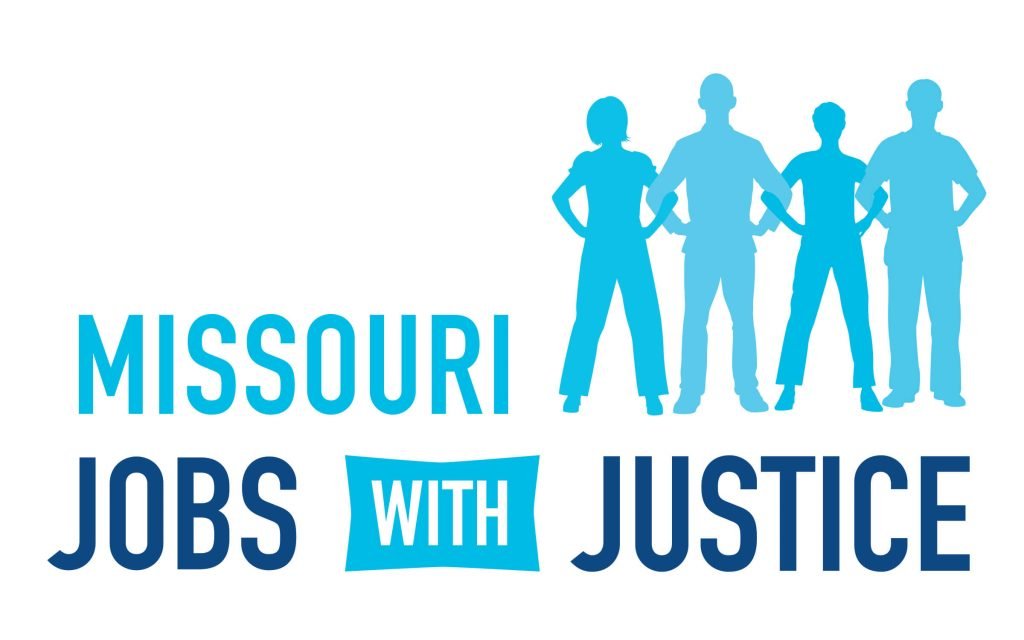I manage a food ministry in Saint Louis City. The majority of people who come to the
Pantry are working people. They may live on fixed income, or they may have as many
as three jobs to work full time. Even then, those ends don’t meet. There is no overtime
or sick pay and most work for less than $10 an hour. So, they come to the food pantry to
save precious dollars so that these may be allocated elsewhere. No one should have to
make a choice between good food or paying rent. Having healthy food and a safe place
to live should not be a privilege.
I have two stories about why raising the minimum wage matters.
In 2015 or so, the St Louis Board of Alderman introduced a bill to raise the minimum
wage to $10 an hour for any employee who worked 20+ hours a week. The rate would
rise incrementally until it reached $15 an hour by 2020. In 2017, the minimum wage of
$10 an hour was implemented. Yet a little while later, the State Legislature passed a bill
to nullify that city increase. Many people who made $10 an hour for that short time had
their wages cut back to less than $8 an hour.
There was a community member who used to come to the Pantry to get groceries. It
was obvious from her uniform that she worked at the St Louis Zoo. When the city raised
the wage to $10 an hour, she stopped coming to the Pantry. Even as the State nullified
the wage increase, the city and many other businesses continued to pay a $10 an hour
minimum wage. I never did see her again although I think of her often. The $2+ an hour
matters greatly for a single person.
During COVID, when the Child Tax Credit was made a monthly payment rather than the
beginning of the year one-time payment, I told a young man with three children under
the age of 6 about the tax credit. He was amazed and asked me, “You mean, I will get
$900 each month? That will make all the difference in the world! All the difference!!!”
That money mattered to that family and many others. A few months after families no
longer received the monthly allocation for the Child Tax Credit, the young man and his
family returned to the Pantry.
Money matters. It can be the root of all evil if it is hoarded; however, the intention to
deprive people of a fair living wage is also evil. Having enough money is the difference
between living in a home or living on the street. It is the difference between having
healthy children or having your children taken away from you because you can’t afford
to feed or house them properly.
St. Paul told the Church in Corinth that we need one another. What affects one of us
affects all of us. Those members that seem to be weaker are indispensable, and those
we think less honorable we should clothe with greater honor and greater respect. The
Rev. Dr. Martin Luther King Jr said “Injustice anywhere is a threat to justice everywhere.
We are caught in an inescapable network of mutuality, tied in a single garment of
destiny. Whatever affects one directly, affects all indirectly.”
We need one another. Some of us need more help than others.
We know we have been told that we are to care for those who are poor. That is the idea
of Jubilee – it is a centering, a rebalancing of rich/poor status. Author and activist Shane
Claiborne says that biblical justice was about “making right what was done wrong,
restoring what had been destroyed, healing the wounds of an offensive act.”[i] It is about
restorative justice.
There is a difference between being poor and living in poverty. Being poor is defined as
having a lower income level than a specific set income standard. Living in poverty is
about survival, the inability to meet those basic human needs of food, water, hygiene,
safety, and sleep. It also includes having a house but no electricity, no heat, or being
unable to make repairs to a home. Poverty can be and often is deadly.
When an individual must sleep outside or a family live out of their car because they
have been evicted, or when a person must walk for miles to find the next free meal, that
is beyond being poor. Their lives are threatened by poverty. No one should have to
worry about where they will sleep at night or if they will find food. No parent should have
to worry about losing their children because they live in poverty. Yet it happens, all the
time. This is not a third-world dilemma; this is the City of St Louis, the State of Missouri,
the United States of America. 2023.
What we do … what we don’t do … matters. It isn’t about offering more charity. It is
about understanding that concept of being caught in that idea of interconnectedness, of
each one of us being tied to the other’s destiny. We don’t need more charity. We need
transformative change that will make the world a better place for everyone. Because
when we bring about changes that lift up those considered to be “the least of these” we,
in effect, lift up the wholeness of our being.
People need a living wage and to receive earned paid sick leave. It matters to the whole
of us as a society.
CommunityNotCharity
The Rev. Deacon Barbi Click, Missioner of Jubilee Ministry of the Episcopal Diocese of
Missouri and Manager of Trinity Food Ministry at Trinity Episcopal Church Saint Louis.
[i] Richard Rohr Daily Meditation: Jesus’ Work of Shalom, Week 34: God’s Restoring Justice,
August 21, 2023

